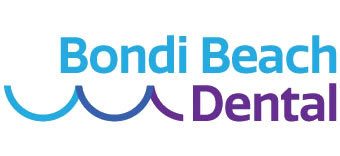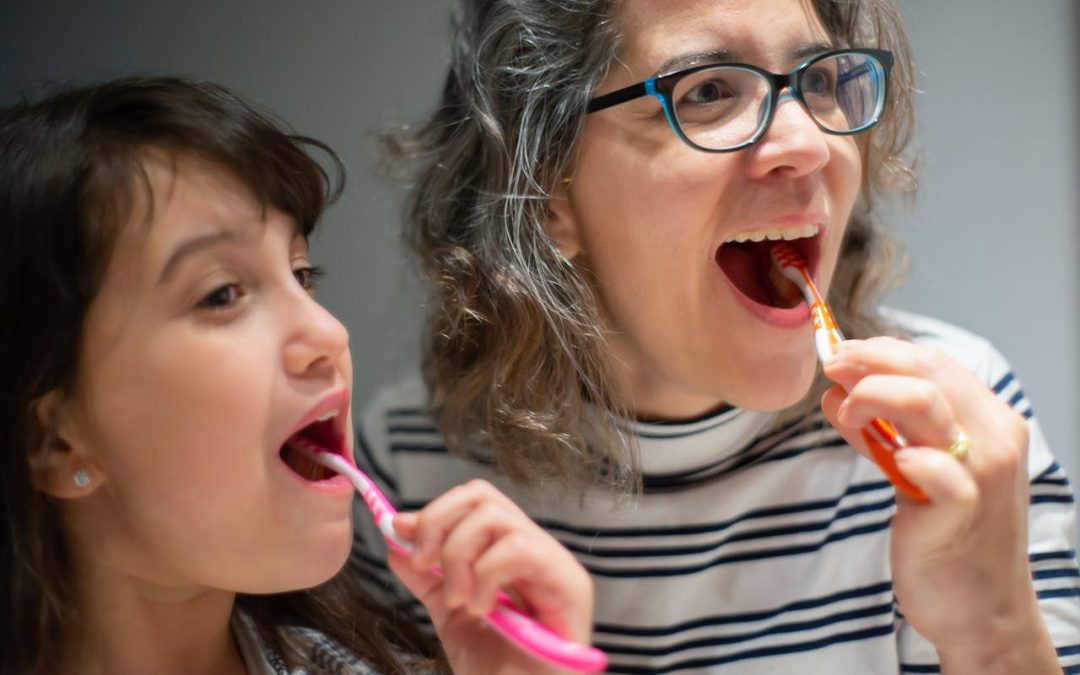Thinking about your next dental visit? A routine dental checkup might seem like a simple appointment, but it’s a really important part of keeping your mouth healthy. Many people aren’t quite sure what goes on during these visits, so let’s break down what you can expect. Knowing what’s happening can make the whole experience much more comfortable.
Key Takeaways
- Your dentist will give your teeth, gums, and mouth a good look-over to spot any early signs of trouble like decay or gum disease.
- A professional cleaning helps get rid of plaque and tartar that brushing alone can’t reach, leaving your teeth feeling smooth and clean.
- X-rays are used to see what’s happening beneath the surface, like checking tooth roots and bone health.
- During the checkup, your dentist will also screen for oral cancer, a vital step for early detection.
- You’ll get personalised advice on how to best care for your teeth and gums at home, and when to schedule your next visit.
Why Routine Dental Checkups Are Essential
It might seem like a simple visit to the dentist, but those regular dental check-ups are incredibly important for your overall well-being. Think of them as a proactive step to keep your smile healthy and prevent bigger issues down the track. We’re not just looking at your teeth; we’re assessing your entire mouth. This includes checking your gums for any signs of disease, looking for early indicators of cavities, and making sure everything in your mouth is functioning as it should. Catching problems early is always easier and less costly than dealing with them once they’ve become more serious.
During your check-up, we’ll also be looking for any changes in your oral tissues. This is part of a vital oral cancer screening that happens at every visit. We gently examine your tongue, cheeks, palate, and the floor of your mouth for anything unusual. Early detection significantly improves treatment outcomes.
Here’s a quick rundown of why these visits matter:
- Prevention: We can identify potential problems like early gum disease or tooth decay before they cause pain or require extensive treatment.
- Early Detection: Issues like cavities, cracked teeth, or even signs of grinding can be spotted and addressed promptly.
- Overall Health Link: Your oral health is connected to your general health. We can sometimes spot signs of other health conditions in your mouth.
- Professional Cleaning: Even with diligent brushing and flossing, plaque and tartar can build up. A professional clean removes this, reducing your risk of gum disease and cavities.
We understand that visiting the dentist can sometimes feel like a chore, but these appointments are designed to be a positive part of maintaining your health. They provide peace of mind and a clear plan for keeping your mouth in top condition.
What to Expect During Your Dental Checkup
A routine dental checkup is designed to keep your mouth healthy and catch any potential issues early. It’s a multi-step process that allows us to get a complete picture of your oral well-being. Here’s a breakdown of what typically happens during your visit:
The Examination: A Thorough Oral Health Assessment
Your dentist will begin by carefully examining your entire mouth. This includes checking your teeth for any signs of decay or wear, and your gums for any inflammation or bleeding, which can indicate gum disease. We also look at your tongue, the roof and floor of your mouth, and the inside of your cheeks for any unusual spots or sores. This visual inspection is key to identifying problems before they become serious. We’ll also gently feel the glands in your neck and under your jaw for any swelling or abnormalities.
Professional Cleaning: Removing Plaque and Tartar
Following the examination, a dental hygienist will perform a professional cleaning. They use specialised tools to gently remove plaque and tartar buildup from your teeth, both above and below the gum line. Even with diligent brushing and flossing at home, some hardened plaque (tartar) can accumulate and requires professional removal. This cleaning helps prevent cavities and gum disease, leaving your teeth feeling smooth and polished.
X-rays: Seeing What the Naked Eye Cannot
Dental X-rays are an important diagnostic tool. They allow us to see what’s happening beneath the surface of your teeth and gums, in areas that can’t be seen during a visual exam. We can detect cavities between teeth, check the health of your tooth roots, assess bone loss, and identify other issues like cysts or impacted teeth. Modern digital X-rays use very low radiation levels, making them safe and efficient.
Oral Cancer Screening: A Vital Part of the Exam
As part of your routine checkup, we conduct an oral cancer screening. This involves carefully examining your mouth, tongue, and throat for any signs that could indicate oral cancer. Early detection significantly improves the chances of successful treatment, making this a critical component of every dental visit.
Discussion and Personalised Advice
Once the examination and cleaning are complete, your dentist will discuss their findings with you. They’ll explain any issues identified, show you any concerns on the X-rays if applicable, and answer any questions you may have. We’ll provide personalised advice on how to maintain your oral health at home, including recommendations for brushing techniques, flossing, and diet. If any further treatment is needed, we will discuss the options and create a plan together.
How Often Should You Visit the Dentist?
The question of how frequently you should attend for a dental check-up isn’t a one-size-fits-all answer. While the common advice is to visit every six months, your individual needs are what truly guide this decision. Your dentist will assess your current oral health, taking into account factors like your history of cavities, gum health, and any specific concerns you might have.
Based on this assessment, a personalised schedule will be recommended. For some individuals with excellent oral hygiene and a low risk of dental issues, visits might be spaced out to once every 12 to 24 months. Conversely, those with a higher risk, perhaps due to gum disease, a history of decay, or other health conditions, may need to come in more often, potentially every three to six months.
Think of it like this:
- Low Risk: Generally good oral health, no recent dental problems, diligent home care. Your dentist might suggest longer intervals between visits.
- Moderate Risk: Some minor concerns, perhaps a history of a few fillings, or you’re managing a chronic health condition that affects oral health. More frequent check-ups might be advised.
- High Risk: Active gum disease, frequent cavities, significant dental work history, or certain medical conditions. Shorter intervals are usually recommended to monitor and manage these issues closely.
Ultimately, your dentist will recommend the recall interval that best suits your specific oral health needs. It’s always best to follow their professional guidance to maintain your smile’s best condition.
Preparing for Your Dental Checkup
To make sure your visit to our practice is as smooth and productive as possible, a little preparation goes a long way. We want you to feel comfortable and informed every step of the way, especially if you experience dentophobia or are new to seeing a dentist. Thinking about the qualities of a good dentist often starts with how well they communicate and prepare you for your appointment.
What to Bring to Your Appointment
While our team at Bondi dentists is here to look after you, having a few things ready can help us provide the best care:
- Your current list of medications: This includes prescriptions, over-the-counter drugs, vitamins, and supplements. Some medications can affect your oral health or interact with dental treatments.
- Any dental insurance information: This helps us process any claims efficiently.
- A list of questions or concerns: Jot down anything you’ve been wondering about your oral health, any discomfort you’ve experienced, or changes you’ve noticed. This ensures we address everything important to you.
- Your medical history updates: If you’ve had any significant health changes since your last visit, please let us know.
Questions to Ask Your Dentist
Your dental checkup is a great opportunity to get personalised advice. Don’t hesitate to ask about:
- Your oral hygiene routine: Are you brushing and flossing effectively? Are there specific techniques or products you could benefit from?
- Any specific concerns: If you’ve noticed sensitivity, bleeding gums, or any other issues, this is the time to discuss them.
- Preventative care options: What can you do between visits to maintain optimal oral health?
- The results of the examination: Understanding what the dentist found helps you take ownership of your dental health.
We understand that visiting the dentist can sometimes feel a bit daunting. Our aim is to create a relaxed and welcoming environment. Please feel free to voice any anxieties you might have; we are here to listen and make your experience as comfortable as possible. Open communication is key to building trust and ensuring you receive the best possible care.
The Benefits of Regular Dental Checkups
Attending your regular dental checkups is more than just a quick visit; it’s a proactive step towards maintaining your overall well-being. These appointments are designed to catch potential issues early, often before you even notice any symptoms. This early detection can make a significant difference in the complexity and cost of treatment.
Think of it like this: a small cavity, if left untreated, can grow larger, potentially leading to a root canal or even tooth loss. Similarly, early signs of gum disease, which might not cause pain initially, can progress to more serious conditions affecting not just your mouth but potentially your general health.
Here are some key advantages of sticking to your dental visit schedule:
- Preventing Dental Problems: Regular checkups allow us to identify and address issues like cavities, gum disease, and enamel wear before they become serious. We can often stop problems in their tracks with simple interventions.
- Maintaining Oral Hygiene: Professional cleanings remove plaque and tartar that regular brushing and flossing can miss. This is vital for preventing decay and gum inflammation.
- Detecting Oral Cancer: A thorough examination includes screening for signs of oral cancer. Early detection dramatically improves treatment outcomes.
- Saving Money and Discomfort: Addressing minor issues early is almost always less expensive and less uncomfortable than treating advanced problems later on.
- Personalised Oral Health Advice: We can provide tailored advice on brushing techniques, flossing, diet, and other habits that impact your oral health, helping you achieve your best smile.
Your oral health is intrinsically linked to your general health. By prioritising these routine visits, you are investing in a healthier future for yourself.
We recommend scheduling your next appointment approximately six months from your current visit. This regular cadence helps us monitor your oral health effectively and stay ahead of any developing concerns. However, the exact timing can vary; we will advise you on the best schedule for your individual needs based on your oral health status.
Wrapping Up Your Visit
So, that’s pretty much what goes down during a standard dental checkup. It’s not just about getting your teeth cleaned, though that’s a big part of it. Your dentist is really looking at the whole picture – checking for any early signs of trouble, making sure your bite is okay, and even screening for things like oral cancer. They’ll chat with you about what they find and give you some pointers on how to keep things in good shape at home. Don’t forget to book your next appointment before you leave; keeping up with these visits is the best way to catch any small issues before they become big ones. It’s all about keeping your smile healthy and bright for the long haul.
Frequently Asked Questions
How often should you visit the dentist for a check-up?
Generally, it’s recommended to have a dental check-up every six months. However, your dentist might suggest more frequent visits based on the health of your teeth and gums, and your risk of future dental issues. Some people with excellent oral health might only need to go once every 12 to 24 months, while others might need to come in sooner.
Are dental X-rays safe?
Yes, dental X-rays are considered safe. The amount of radiation used is very small, and they are a crucial tool for your dentist to get a complete picture of your oral health, spotting problems that can’t be seen with the naked eye.
What should you do before your dental appointment?
It’s a good idea to eat a light meal and make sure your mouth is clean before you go. Also, think about any questions or concerns you might have so you can ask your dentist during your visit.
How long does a typical dental check-up take?
A standard dental check-up, which usually includes an examination and a cleaning, typically takes between 30 minutes to an hour. If more complex procedures are needed, it might take a bit longer.
Does a dental check-up include screening for oral cancer?
Yes, absolutely. Checking for signs of oral cancer is a vital part of a routine dental examination. Your dentist will look for any unusual changes in your mouth, face, and neck.
What if you’re feeling anxious about your dental visit?
It’s very common to feel a bit nervous about dental visits. Please let your dental team know about your concerns. Many dental practices offer options, like sedation, to help you feel more comfortable during your appointment. Open communication is key!





